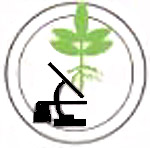ALEXANDER HUMBOLDT INSTITUTE FOR BASIC RESEARCH IN TROPICAL AGRICULTURE (INIFAT)

Español
ALEXANDER HUMBOLDT INSTITUTE FOR BASIC RESEARCH IN TROPICAL AGRICULTURE (INIFAT) |
 Español |
The INIFAT Culture Collection was established in 1975 with the objective of conserving pure cultures of fungi pathogenic on economic plants with the intention to use those cultures for genetic improvement of the plants. In 1980, the work was extended to include saprobic fungi of all taxonomic groups with the ability to grow in pure culture. At present, the Collection preserves 5350 pure cultures of conidial fungi, ascomycetes, basidiomycetes and zygomycetes, together with about 100 strains of chromistans (organisms formerly regarded as fungi) pathogenic on cultivated plants.
Study and isolation of fungi pathogenic on garden, vegetable, cereal and other grain crops; Isolation and study of fungi pathogenic on nematode worms; Study of antagonistic fungi and their potential as agents of biological control of insects, plant pathogenic fungi and undesirable plants; Study of fungi in home environments of children suffering from allergic diseases, in support of the Ministry of Public Health. The team running the Collection comprises:
Dr R.F. Castañeda Ruíz, Curator and Head of the Collection (conidial fungi), Lic. S. Velásquez Noa (fungi parasitic on nematode worms), Lic. D. García (soil ascomycetes). Assistants:
Nercy Rodríguez de la Rosa, Aliana Sosa León, Nirva González López, Mirta Caraballo Fernández, Irma Marrero Granados.
Among themes followed by the Collection, the following are highlighted: